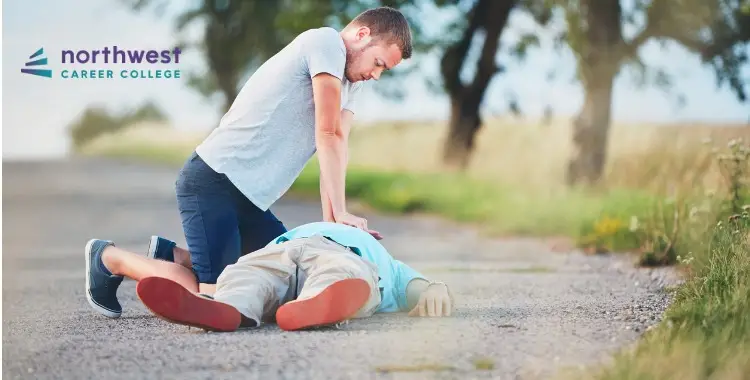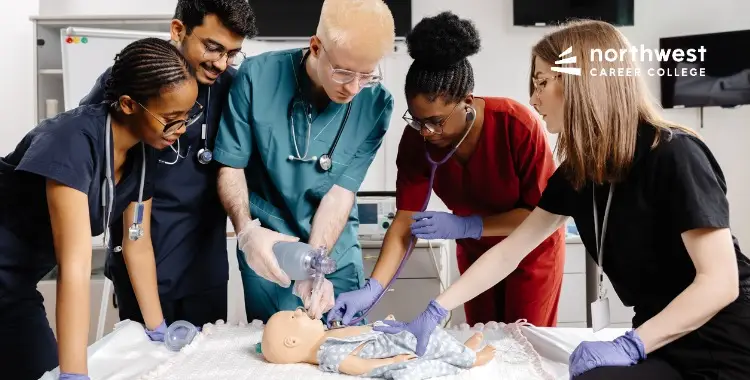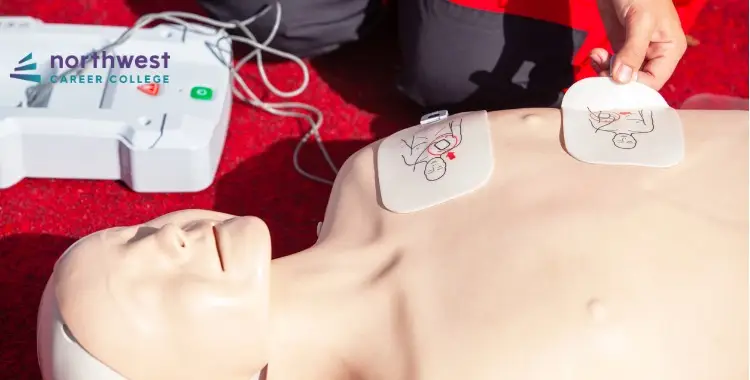What Happens When CPR Fails?
- CPR
- April 8, 2025
- 4.3k views
- 4 min read

Receiving training in CPR put you in the unenviable position that, while CPR certainly saves lives, you might be called upon to perform it, and it might not work. The reality is that, outside of the movies, CPR does not work every time. In fact, on its own CPR only works around 2% of the time, mostly because it is not designed to be used in isolation.
Table of Contents
So What Happens When it Doesn’t Work?
If you are trained in CPR then there is a very real possibility that you might be involved in something similar to the following example:
You are out shopping for groceries and generally minding your own business. Ahead of you a person in their late forties collapses and falls unconscious. You see this and, acting quickly, run over to the person to assess their condition. Seeing they are unconscious and do not appear to be breathing, you call 911 and, using your training, start to performing CPR on the person.
In short order, fully trained EMS personnel arrive on the scene and take over. The person is rushed to the hospital and, you later find out, is pronounced dead.
You might find yourself wondering “What could I have been done differently?” Well, the reality is, there really isn’t anything you could have done differently.
CPR, despite being called Cardio-Pulmonary Resuscitation, is ironically not intended to resuscitate a person at all. The goal of applying CPR is to circulate enough oxygen to keep a victim’s brain from dying, nothing more. Only in very rare cases does this process result in a person regaining consciousness.
The thing you need to understand is that there is no way you could have “failed” at giving CPR and, to know why that is, we’ll have to distinguish between clinical death and biological death.
Clinical Death vs. Biological Death
While it might be confusing, there is a massive difference between clinical death and biological death. Clinical death means that the heart has stopped beating, whereas biological death means the brain has ceased to function.
This difference is critical to our understanding of how CPR works. When a person suffers from cardiac arrest, and their heart stops beating, they are, by any medical standard, clinically dead. You perform CPR on them because they are not yet biologically dead. By manually pumping the heart through chest compression, and giving rescue breaths, you can delay the onset of biological death by getting vital oxygen to the brain.
However, CPR can only provide, at best, 20% of the required oxygen necessary to keep a person’s brain alive. This means that CPR cannot be relied upon to keep a person alive. Once the heart is stopped, that person cannot be kept alive indefinitely by a person performing CPR, however good their technique might be.
So Why bother with CPR?
Over 40% of the Americans who die from cardiac arrest every year receive no CPR whatsoever. If a trained individual is able to start performing CPR on a victim immediately, the victim’s chances of survival increase by more than 40%. On the other hand, for every minute treatment is delayed, the victim’s chances of survival are reduced by 10%.
Even more importantly, four out of every five heart attacks in the U.S. happen at home, meaning the person you are most likely to perform CPR on is someone you are close too. CPR techniques are simple, easy to learn and offer you the chance to help someone you care about to be around 40% more likely to survive a heart attack.
While CPR might have only a 2% chance of working on its own, a combination of CPR, EMS care, and hospital care can raise that survival rate to 40%. Even if you perform CPR and it doesn’t work, your actions increased that person’s chances of survival considerably, making it worth performing CPR, even if it doesn’t always work.
Learn To Save Lives
Here at our trade school, we are committed to providing affordable, quality CPR classes to the Las Vegas community. We pride ourselves on being an American Heart Association (AHA) testing center and we offer Las Vegas CPR classes designed to fit your personal needs and professional schedule. As part of our “student-focused” approach to education, we also offer our CPR classes free of charge to all of our students. Call us today at (702) 403-1592 to book your CPR class and become qualified to save a life in just 4 hours!



